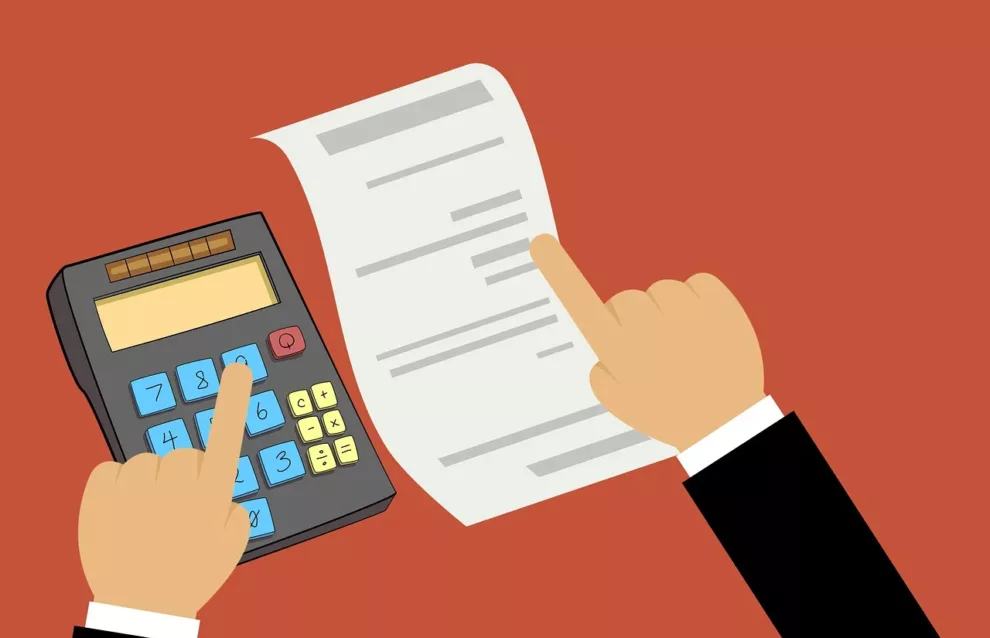Freelancers are one of the fastest growing segments in today’s economy with great growth potential. But while we may be highly skilled in our particular niche, many of us don’t have the time or expertise to manage our money properly.
What if I told you that you could grow your business and increase your personal wealth if you prioritized financial management now? We’ll take a look at some tips to make financial management more attainable for freelancers.
Why is financial management important for freelancers?
Unless you have an accounting degree or years of hands-on experience, financial management can be confusing and time-consuming. The situation becomes more complex with additional tax concerns for remote workers and self-employed individuals.
As a freelance professional, in addition to taking on all of the core business processes yourself, you’re also losing the advantage of an employer to help with 401ks and other savings and financial management. While some people have a good head for business, none of us are born knowing things like tax planning, budgeting, and bookkeeping.
These are highly detailed activities that professionals dedicate their careers to learning and perfecting. Even if you can afford to outsource such services, you should at least have a working knowledge of how to manage risk, leverage income, and create a budget. These tips
Finance tips for freelancers
These tips will help you prioritize financial management in your freelance business.
Pay yourself first
When I first started freelancing, I considered all of the money I brought in as income. I would use it directly to pay my bills and purchase things I needed. Anything I had left at the end of the week was “profit.”
As it turns out, that’s no way to get ahead. In fact, I was barely keeping my head above water. Once I learned more about resource management, I started treating myself like an employee of a business. I opened a business account and paid myself a salary, which was separate from whatever profit I made. This is critical in formalizing what can feel like an informal work arrangement.
To do this properly, you should invest in invoicing software that comes with crucial features like branded templates, automatic billing for repeat clients, and easy accounting management. This will show clients that your freelance business is legitimate, and it will make your life a lot easier come tax time.
Keep business and personal expenses separate
This goes hand-in-hand with tip number one. If you want to launch a serious business that grows and generates a profit, you have to treat it like a business.
Forming an LLC or solo business enterprise costs less than $100 in most states. If your business qualifies, you can also form a corporation or add partners to your LLC. It doesn’t cost much more, and you’ll be able to protect your business from personal financial liability and vice-versa.
For example, a company can’t sue your business if you default on a personal credit account or loan. If someone sues your business, they won’t be able to come after your personal assets for settlement. Keeping your business and personal finances separate will also allow you to keep more comprehensive control over business revenue and provide a more realistic picture of where your business stands financially.
Plan for retirement
Just because you don’t work for a company, that doesn’t mean that you shouldn’t be saving for retirement. Wasn’t part of the lure of working for yourself the prospect of retiring early to an island somewhere? You should start now in your retirement preparations to give yourself greater peace of mind as you progress in your career.
The IRS offers Roth IRAs and other retirement plans for those who don’t have access to employer-provided retirement. These are usually funded through local banks, and they offer several incentives that make them a desirable way to save for your golden years. You can learn more about retirement plans types, requirements, and rules through the IRS website.
Don’t skimp on necessary expenses
When money is tight, it’s tempting to try to pass on things that aren’t immediately essential to getting your freelance career up and running. You may be starting out on a borrowed laptop or making deliveries in your personal vehicle. Maybe you’re trying to shave off a few bucks by using a “free” hosting service to build your business website.
However, some cut-cutting measures could end up costing you money. For example, that free hosting platform is probably making money off the back end by selling your data to marketers or scammers and forcing you to place banner ads on your site. Web developer and blogger Gary Stevens of Hosting Canada explains further how cheap web hosts can be problematic for business owners:
“When it comes to web hosts, never go with the cheapest option,” says Stevens. “You definitely get what you pay for with web hosting. There are all kinds of scams in the web hosting industry, as companies offer low rates to get customers who don’t know any better. These hosts often make millions while using very low-quality servers, which leaves them vulnerable to security breaches.”
Choosing a free hosting option also means you’ll have to have their name in your URL, which looks less professional (and may mean that they actually own your website). Free hosting also comes with less security, more downtime, and unstable performance.
Insurance is another thing that may seem like something you can skip until later. After all, what are the odds you’ll experience business disruption because your car broke down, someone sues you, or a house fire destroys your home office? I say this with sarcasm as someone who has experienced two of these three possibilities (I’ve never been sued) and had no comprehensive insurance to protect me from the financial fallout.
Being adequately insured is a necessary part of risk management, and it may be a legal requirement depending on your state and industry. Before you try to save money or cut corners, consider the cost of not protecting yourself and your business from loss versus the relatively low cost of doing business right.
Learn when to buy and when to lease
While a secure web host and business insurance are must-haves, there are some areas where you can cut costs by renting or sharing resources instead of buying your own.
For example, you can get away with using the family vehicle, but you may need to use it for business only to write off certain repairs or use it as a business tax deduction. Depending on how much driving you do for your business, leasing a vehicle may be more cost-effective.
On the tech side, if you already have a good computer, this could be okay as long as it can handle a professional workload. If it’s going to see heavy use, leasing equipment is usually cheaper in terms of out-of-pocket expense, and the lease will come with a service agreement. As far as your business applications are concerned, SaaS and PaaS solutions are almost always cheaper and more up-to-date than purchasing software and platforms yourself.
Take advantage of financial assistance
Many people don’t realize that they can qualify for financial assistance like tax credits and loans that are specific to SMEs and freelancers.
You may be aware that you qualify for such perks as earned income credit and deductions for business use of your home and vehicle. But you can also qualify for low-interest loans from angel investors and crowdfunding, as well as targeted grants from local sources and the Small Business Administration.
This includes funding for tech startups and minority or women-owned companies. Grants don’t have to be repaid, and they can help ease a lot of financial burdens on freelancers who may not have a safety net starting out.
Make budgeting and tax planning a priority
Budgeting is the simplest and most basic way of knowing where all of your expenses and income originate and how to best allocate your money. It helps you identify trends and use your money more intelligently. For example, if you know you have a large, bulk payment coming up, like a renewal or licensing fee, put aside a little month by month so you don’t have to come out of pocket all at once.
What’s more, taxes may be boring, but knowing what you need to file and when – in addition to learning what credits and deductions you can use – will save you money, time, and possible legal consequences down the line.
Conclusion
You don’t have to be a seasoned investor to benefit from sound financial advice. In fact, the sooner you find help to get your finances in order, the sooner you’ll have more profit to reinvest in your business and disposable income to invest in yourself. From building your small business website to planning for retirement, using these financial management tips will help you increase your wealth and make the most of the income you earn.










Add Comment